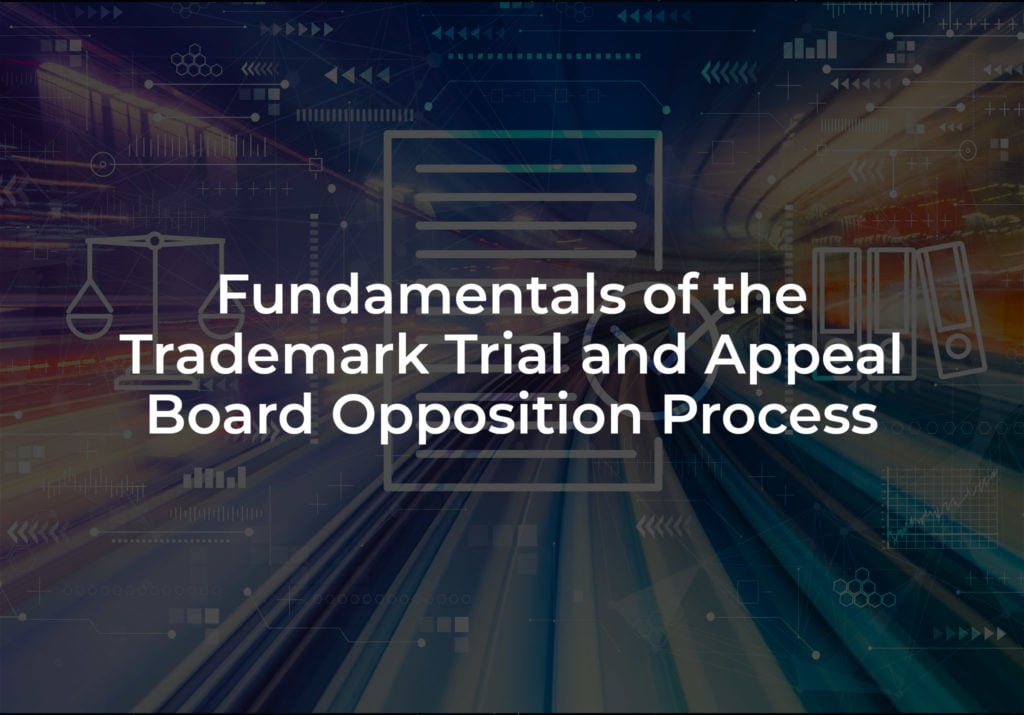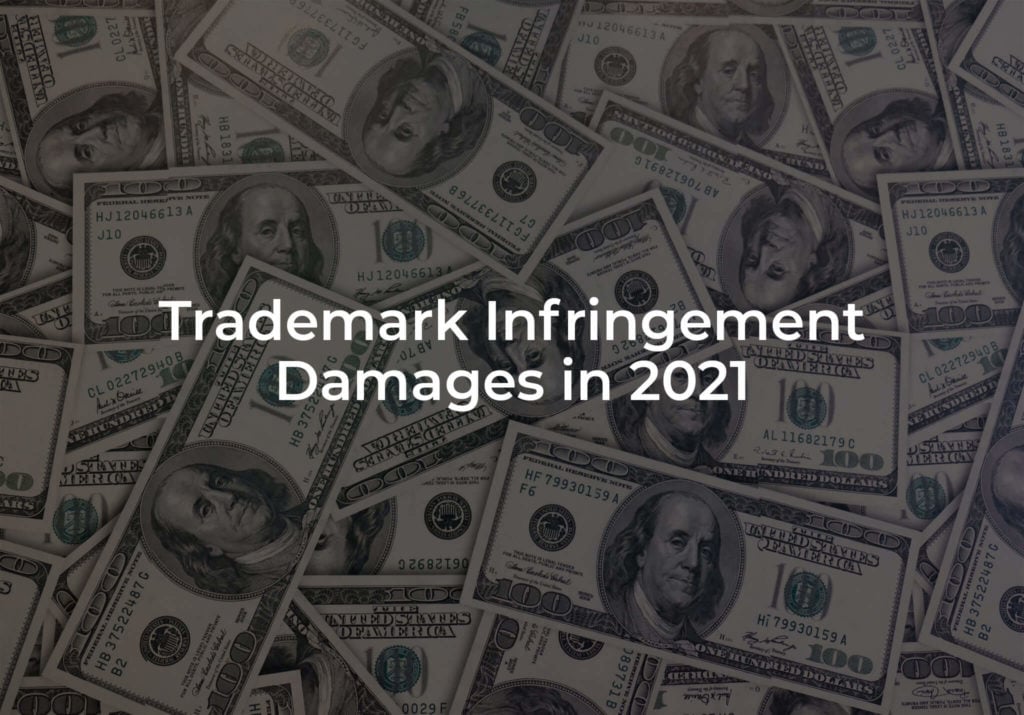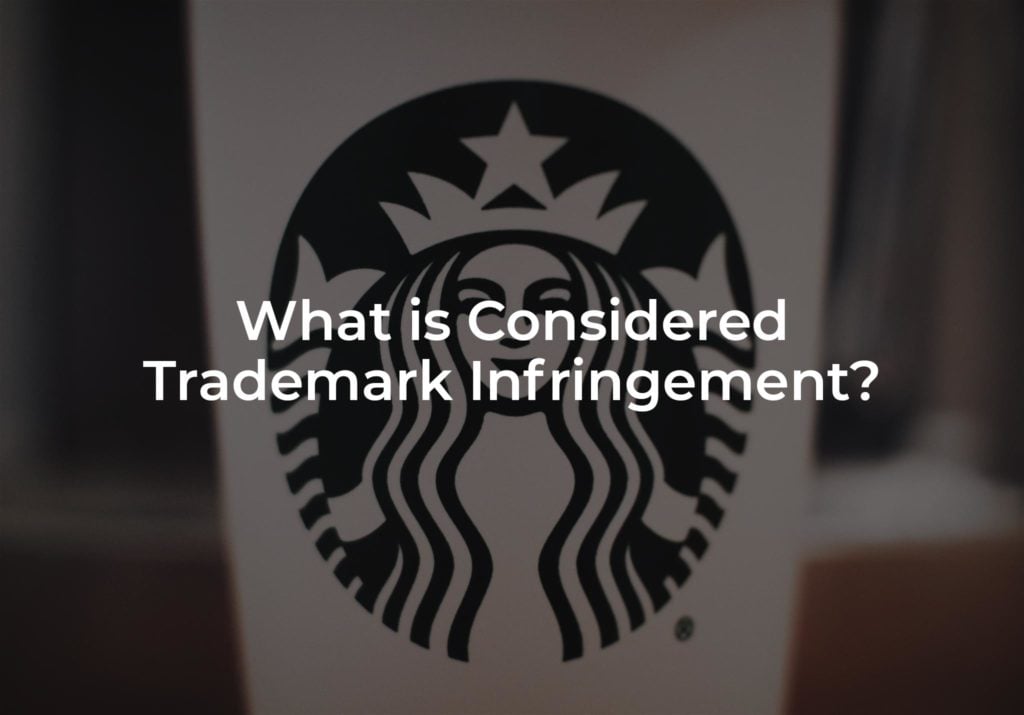Trademarks are an important part of a business’ identity and can play a crucial role influencing consumer behavior. When filing a trademark, the process is intended to ensure that no other trademarks are similar to the one being submitted. The purpose of this process is to avoid consumer confusion and not to adversely impact existing registrations. The judicial arm of the U.S. Patent and Trademark Office is the Trademark Trial and Appeal Board (“TTAB”), whose purpose is to hear oppositions to trademark registrations, or decide on cancellations to existing registrations. TTAB proceedings are adversarial and analogous a mini- trial, focused solely on pending or existing registrations. A trademark infringement, for example, would not be litigated as a TTAB Case.
So what is the process for bringing oppositions before the TTAB, and how are TTAB similar or different than civil action in court?
What is a TTAB Opposition?
An opposition is brought by any person (the “opposer”) who believes that he or she will be damaged by the registration of a mark on the Principal Register. TMEP § 1503.01. A potential opposer has thirty (30) days after the date of publication in the Trademark Official Gazaette, or within the extension period granted by the Board, to file an opposition. TMEP § 1503.03. If you are unsure about potential litigation and need longer than thirty (30) days to make a decision, you must file a request to extend the time to oppose. The request must be filed within thirty (30) days after the date of publication in the Trademark Official Gazette or within an extension period granted by the Board. TMEP § 1503.04. A potential opposer is limited to no more than three (3) extensions, totaling no more than 180 days from the date of publication. TBMP § 202.01. The following chart shows the timing of the initial publication period and extensions
| Publication | First 30 days | Next 60 days | Final 60 days |
| 30 days 37 CFR § 2.102(c) | No reason needed | Good cause or consent 37 CFR § 2.102(c)(2) | Consent or extraordinary circumstances 37 CFR § 2.102(c)(3) |
| First 90 Days For good cause or consent 37 CFR § 2.102(c)(1) |
If you fail to oppose within the thirty (30) day limit or fail to file an extension approved by the Board, the application may be registered, and you will need to pursue a cancellation proceeding. If the application was filed as an In-Use (1a) application, the wait time to file a cancellation is minimal. However, be aware that applications filed as Intent-to-Use (1b) are issued a notice of allowance after the publication phase and will need to file a statement of use to become a registered trademark. The statement of use filed by the Applicant shows the Applicant is using the applied-for trademark in commerce for the goods and/or services in Applicant’s application. Applicants are allowed up to five (5) extensions, totaling no more than thirty (30) months from the date of the issuance of the notice of allowance to file a statement of use. TMEP § 1108.01. Between the issuance of the notice of allowance and the filing of the statement of use, the Board will not entertain neither an opposition nor a cancellation proceeding. Therefore, if you miss the deadline to file an opposition or an extension to oppose, you must wait until the Applicant files an approved statement of use before you can take further action within TTAB.
TTAB Opposition Compared to Civil Action
In general, motion and discovery practice in oppositions are governed by the Federal Rules of Civil Procedure unless modified by Board rules. TBMP § 101. For example, similar to civil proceedings, parties are free to file motions to dismiss, motions to compel, and/or motions for summary judgment. However, discovery requests are limited by the Board to seventy-five (75) interrogatories, whereas in civil proceedings the limit is twenty-five (25). Unlike a civil action, however, live appearances are rare. All filings take place through the USPTO ESTTA system and the only in-person appearance before the Board is during an oral argument at final hearing, if requested by a party. TBMP § 801. The biggest difference between an opposition and civil action relates to the remedies available to the parties. The Board is empowered to determine the right to register and has no authority to determine the right to use or decide questions of infringement or unfair competition. TBMP § 102.01. Additionally, the Board will not award attorneys’ fees, damages, other expenses, or hold any person in contempt. TBMP § 502.05. Whether you’re the opposer or the applicant, it is critical to have a qualified attorney at the beginning of the process to ensure a cost-effective strategic approach.
TTAB Process and Timeframes
The TTAB process has critical timeframes that must be met. Since most of the proceedings are held outside of court, it is critical to secure a knowledgeable attorney early in the process to establish a strategy for the desired outcome, and to ensure submission and filing deadlines are not missed.
The following is a timeline of what you can expect:
Opposition – Filed within 30 days of publication
Institution Order – This is the timeline set by TTAB and will change throughout the proceedings based on motions and suspensions.
Answer – An answer must be filed with approximately 40 days of the Notice of Opposition.
Discovery – A required discovery conference is mandatory at takes place once the pleadings have closed and by deadlines set forth in the Boards institution order, and must take place no later than the opening of the discovery period. TBMP § 401. The purpose of this meeting is to set forth a plan for discovery and to identify any other possible changes. In addition, logistics are discussed, which include: settlement, modifications to the discovery or trial calendar, stipulation for declaration or deposition, expert testimony and scheduling, preservation of electronically stored information (“ESI”) or other discoverable information, a plan for discovery, issues related to ESI that may submitted in court (e.g., acceptable formats, limitations, etc.), and any alterations to the TTAB Standard Protective Order.
The discovery period is open for 180 where parties can submit interrogatories, request for documents, and admission requests.
Testimony period – This is where both parties have an opportunity to present their evidence. The opposing party gets a 30-day period, followed by the applicant’s 30-period, followed by the opposing parties 15-day period to rebut.
Trial Briefs – These operate in the same alternating fashion as the testimony period. This offers each side the opportunity to put forward the evidence to the Board in support of their argument. The opposer has 30 days following the testimony period to submit their brief. The applicant has 30 days following the oppositions filing to file their argument. The opposer has 15 days following applicant’s trial brief to submit rebuttals.
Oral arguments – if requested
Decision – Once all evidence is submitted, trial briefs have been filed, and oral arguments are heard, the Board will render a decision usually within six months. The losing party has the right to appeal.
A condensed example timeline from an Institution Order instituted on November 4, 2021, would look as follows:
| Time to Answer | 12/14/2021 |
| Deadline for Discovery Conference | 1/13/2022 |
| Initial Disclosures Due | 2/12/2022 |
| Expert Disclosures Due | 6/12/2022 |
| Discovery Closes | 7/12/2022 |
| Plaintiff’s Pretrial Disclosures Due | 8/26/2022 |
| Plaintiff’s 30-day Trial Period Ends | 10/10/2022 |
| Defendant’s Pretrial Disclosures Due | 10/25/2022 |
| Defendant’s 30-day Trial Period Ends | 12/9/2022 |
| Plaintiff’s Rebuttal Disclosures Due | 12/24/2022 |
| Plaintiff’s 15-day Rebuttal Period Ends | 1/23/2023 |
| Plaintiff’s Opening Brief Due | 3/24/2023 |
| Defendant’s Brief Due | 4/23/2023 |
| Plaintiff’s Reply Brief Due | 5/8/2023 |
| Request for Oral Hearing (optional) due | 5/18/2023 |
TTAB Considerations
The above outlined process regarding TTAB oppositions and appeals has been greatly simplified. There are many other considerations regarding the process that an experienced attorney will be able to communicate to their client. Such as the substance of any interrogatories to ask, which admissions to seek, what documents to gather, and, if any, who should be deposed.
A client may unknowingly secure representation with someone less familiar with the differences between the rules governing TTAB and other civil actions. It is important to secure an attorney who is regularly in front of TTAB and familiar with the governing statutes and filing timelines to guide an applicant or opposer through the various distinct requirements. Additionally, it is important that a client secure an attorney early in the process so that they can be prepared for discovery, the testimony period, and drafting a thorough and compelling trial brief.
Consult With an Experienced Trademark Attorney
An IP attorney with extensive experience in trademark law and TTAB oppositions can assist you in adequately preparing for the opposition process while keeping an eye on critical deadlines. At The Rapacke Law Group, we are well equipped to help you safeguard your trademark application.
Still have questions? Take our Intelligent IP Quiz or schedule your free phone consultation at to speak with an experienced IP attorney about protecting your trademark application.




